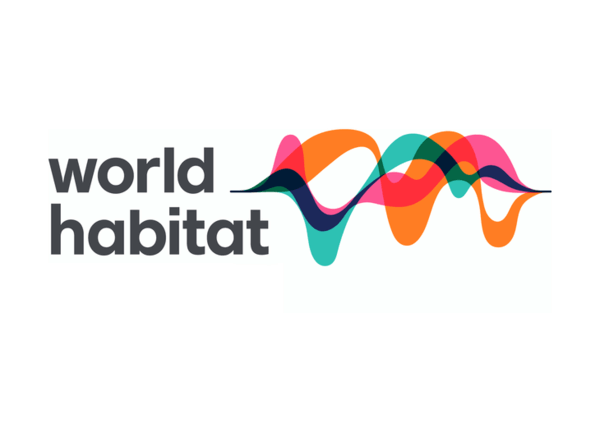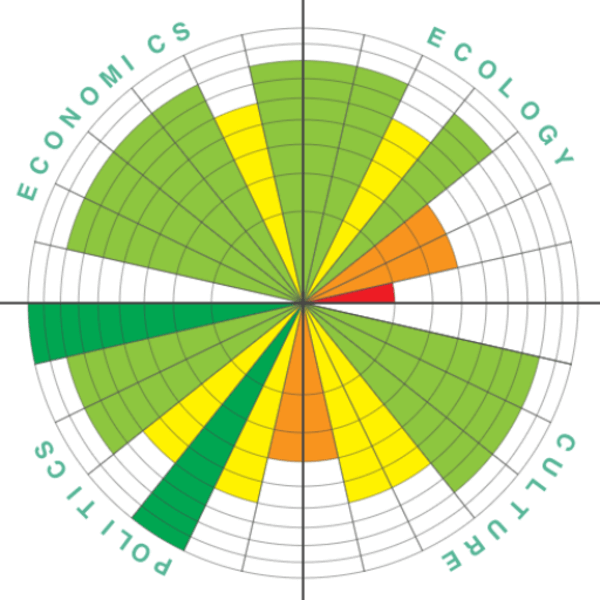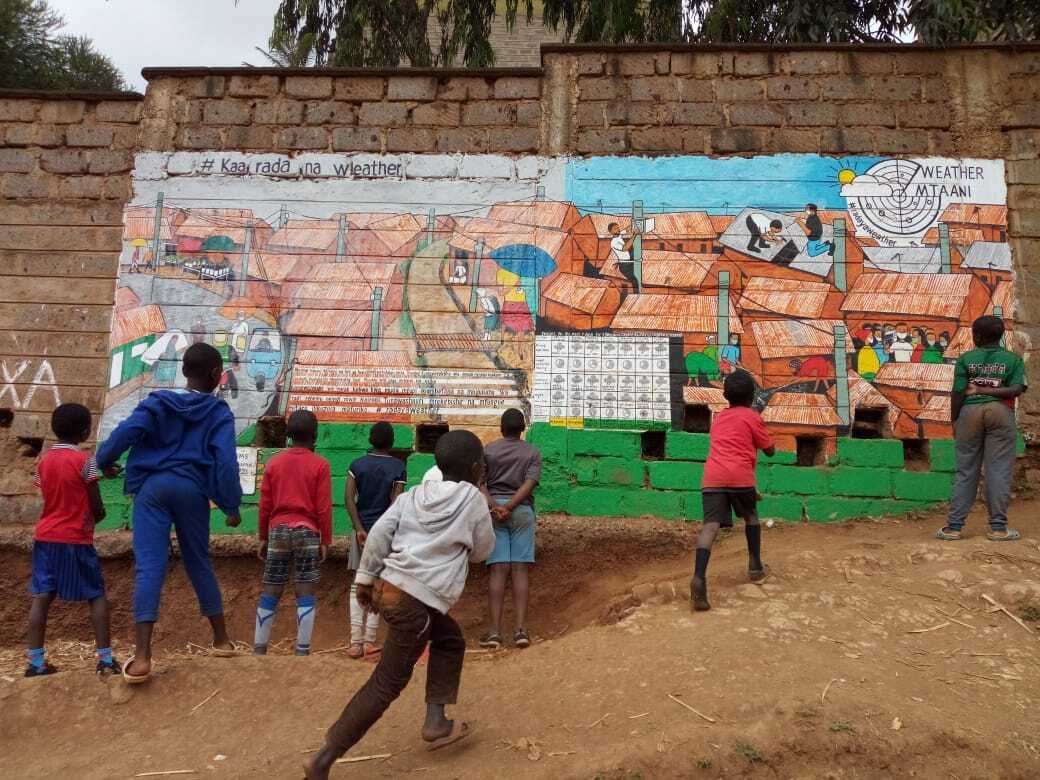 Daraja - © World Habitat Awards 2024
Daraja - © World Habitat Awards 2024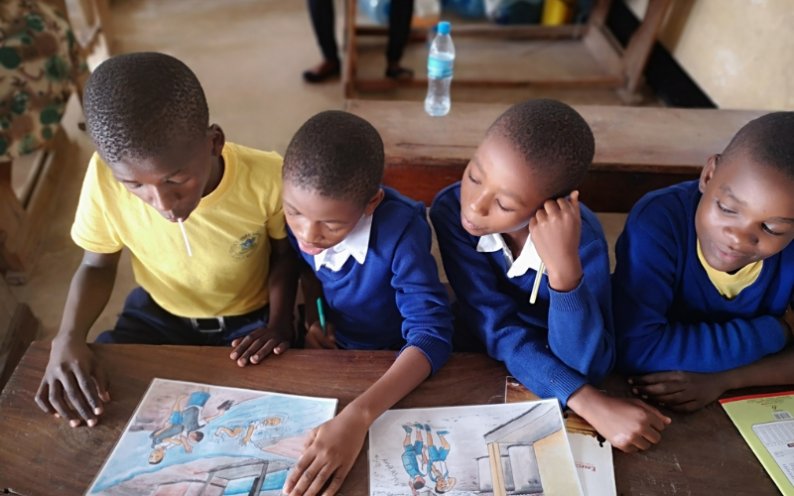 - © World Habitat Awards
- © World Habitat Awards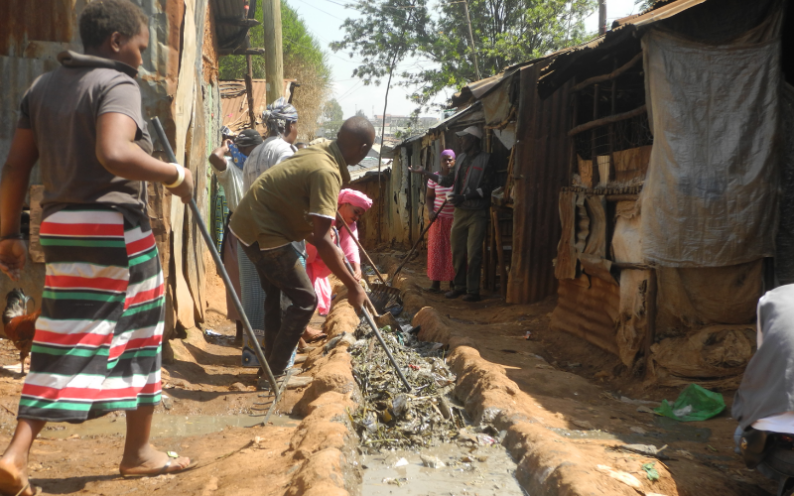 - © World Habitat Awards
- © World Habitat Awards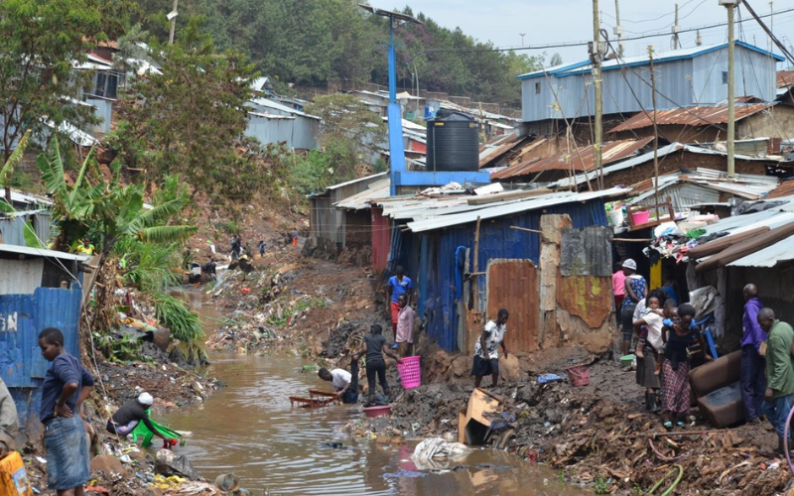 - © World Habitat Awards
- © World Habitat Awards
Item 1 of 4
Status
ongoing
50%
City
Nairobi
Main actors
City Government, National Government, Supranational / Intergovernmental Institutions, Private Sector, NGO / Philanthropy, Community / Citizen Group
Project area
other
Duration
Ongoing since 2018
Reliable and regular weather and climate information services are particularly important to people who are vulnerable to weather variations, or whose lives and livelihoods can be affected by it – specifically, the 1.6 billion people living without adequate shelter worldwide. DARAJA (Developing Risk Awareness through Joint Action) provides an early warning weather and climate information system for urban areas of the Global South, specifically to those in informal settlements in East Africa. It is operated by Resurgence and project partners in Kenya and Tanzania. It helps weather forecasters and city planners transform data into informed climate preparedness. This project brings together accessible tailored weather warnings with response action plans that allow communities to prepare. It has effectively mapped out the gaps in the weather forecasting service and engaged a diverse set of relevant actors to deliver a targeted and impactful service.
Originally published by World Habitat and reproduced here with its permission. LINK
World Habitat Awards
This project was awarded the 'World Habitat Awards' in 2024 in the following category: Bronze .
City
Nairobi, Kenya
Size and population development
According to the most recent census in 2009, the population of Nairobi was 3,138,369. The city covers an area 696km2 with a population density of 4,859 people per km2. Nairobi is one of the fastest growing cities in Africa. Currently, the city is growing at a rate of over 4% annually, primarily because of high birth rates and immigrants that come to Nairobi searching for employment opportunities. It is estimated that the city will continue on its upward trajectory in terms of population.’ The world Population Review estimates the 2019 population of Nairobi at 4,556,381
Population composition
Nairobi is an ethnically diverse city and Kenya’s major ethnic groups all reside here, including Luo, Luhyia and Kamba. There are also many Asians, Europeans, and Somalis that call this city home. The primary languages of Nairobi are Swahili and English. The city is the location of one of the largest slums in the world, Kibera, and approximately 22% of the city’s residents live in poverty.
Main functions
Nairobi is the capital and largest city of Kenya, the second largest city by population in the African Great Lakes region and the 10th largest city in Africa. The city is situated in the south-central part of Kenya, in the highlands at an elevation of approximately 1,680 metres.
Main industries / business
Several of Africa's largest companies are headquartered in Nairobi - Safaricom, and Kenya Airways and more recently local fintech firms including Craft Silicon, Kangen Technologies and JamboPay who have been in the forefront of technology, and cloud-based computing services. Nairobi has a large tourism industry, being both a tourist destination and a transport hub and is home to the Nairobi Securities Exchange (NSE), one of Africa's largest stock exchange. Goods manufactured in Nairobi include clothing, textiles, building materials, processed foods beverages, and cigarettes. The United Nations Office in Nairobi hosts UN Environment and UN-Habitat headquarters and the city is the regional headquarters of several international companies and organisations including General Electric, Coca-Cola, IBM, Google and Cisco Systems, General Motors, Goodyear and Toyota.
Sources for city budget
Political structure
The City of Nairobi enjoys the status of a full administrative County. The County Assembly consist of members elected by the registered voters of the wards; each ward constituting a single member constituency, on the same day as a general election of Members of Parliament, being the second Tuesday in August, in every fifth year; The number of special seat members necessary to ensure that no more than two-thirds of the membership of the Assembly are of the same gender; the number of members of marginalized groups, including persons with disabilities and the youth, prescribed by an Act of Parliament; and the Speaker, who is an ex-officio member. The County Assembly is the Legislative arm of the County Government responsible for the formulation of laws that regulate the conduct and activities within the County and provide oversight. Nairobi City County Assembly comprises of 85 elected and 38 nominated Members of the County Assembly (MCA’s) who sit on various committees of the Assembly.
Administrative structure
Nairobi is divided into seventeen constituencies and eighty-five wards.
Website
https://www.nairobi.go.ke/
As the world is becoming increasingly urbanised (the UN estimates that over 50% of the world’s population resides in urban centres and is expected to rise to 68% by 2050), climate change will have implications for rapidly expanding towns and cities. Worldwide, cities are already experiencing increased flooding, heat waves and extreme weather events. As more people move to cities, they are often forced to settle on increasingly unstable land, in informal settlements which lack the infrastructure to support residents. In many instances, weather and climate information services do not reach the populations of informal settlements or, if they do, residents don’t find the information useful or trustworthy, or find it too technical to interpret.
This project aims to:
- Improve resilience of people living in urban informal settlements through co-creating interfaces and services to address climate-related risks.
- Deliver reliable, co-produced and accessible climate information services to inform new planning decisions at city-level or settlement-level.
- Increase use of reliable, co-produced and accessible climate information services by people living in a low-income/urban informal settlement.
DARAJA is designed to reach the most vulnerable groups in informal settlements exposed to storms, floods, heatwaves and chronic water stress. It does this through existing formal and informal community groups that represent the more marginalised of informal settlements, including women, savings and loan groups, youth groups, disaster risk communities, disability support groups and faith-based groups. It does this by supporting community structures that already exist rather than creating anew. This in turn strengthens pre-existing community support mechanisms in the informal settlements.
The improved resilience of those living in inadequate shelters benefit city officials especially as conditions are likely to worsen, placing greater demands on municipal services and resources. Rather than creating a new aid-like structure in lieu of adequate state weather services it has worked with the existing services, identified the gaps and pulled in other key informal settlement stakeholders like the Red Cross. Connecting these disparate actors helps them carry out their own responsibilities and missions effectively while delivering a comprehensive and sustainable system.
The key actions of this project are:
Diverse network facilitation: DARAJA pulls together vulnerable urban residents; national weather agencies providing residents with climate information; civil protection and disaster management agencies working on safety; infrastructure operators working on the built environment; and media houses, telecommunication companies and schools disseminating information, all in one connected information-sharing network.
Community Co-Design: Each weather forecasting service in Kibera and Dar es Salam was designed following workshops with media stakeholders, community members and city authorities. Frequent feedback sessions are also held throughout to continue to refine the service. To ensure inclusive design and implementation, DARAJA works with women and savings groups, faith-based groups and youth groups, among others. Communities take part in the housing and community improvements themselves. KDI and CCI closely supervise these improvements to ensure safety protocols are followed but will also conduct follow up assessments to make sure that the improvements are safe and secure. Trainings are also provided on community health and safety, as well as awareness raising so that community members know when to consult professionally trained experts on housing reconstruction and repairs (electricians, contractors etc.)
Localisation: Weather and climate services are tailored according to community needs. Local leaders, selected by their community, are trained to interpret forecasts. A local communication system was created to trained local leaders share weekly and severe weather forecasts in an easy-to understand format through messages disseminated by SMS, word of mouth or phone calls. Moreover, the community leaders and local radio stations are instrumental to understanding the actual impacts of adverse weather conditions in the informal settlement and advising residents effectively.
Resilience Response: The project alone does not focus on just delivering information, but also seeks to encourage behavioural change so that communities can empower themselves to prepare. Following forecasts, residents take actions as cleaning drains, making repairs to their homes, and moving valuable possessions out of harm’s way to protect their living environment and homes. These actions are closely supervised and tracked through 7 local partners, KDI and CCI. Moreover, CCI has improved sanitation infrastructure by installing concrete walls to reduce risk of collapse during heavy rains and high wind, as well as introducing different sanitation options that if unaddressed would accumulate waste and risk flooding during heavy rains.
The lead agency for the project is Resurgence, a global design, communications and consulting not for-profit social enterprise. It specialises in managing urban climate risk and resilience. It helps cities and communities protect themselves from the impacts of climate change by helping weather forecasters and city planners transform data into climate action.
Resurgence partners with two local housing organisations in Kenya and Tanzania. In Nairobi (Kenya), it partners with Kounkuey Design Initiative (KDI), a community development and design not for-profit organisation. KDI employs community resilience experts, engineers, architects, local community organisers, community and operations staff. In Dar es Salaam (Tanzania), Resurgence partners with Centre for Community Initiatives (CCI). This is a notfor-profit organisation that builds the capacity of urban poor communities to improve the quality of their housing. In parallel with its work on DARAJA, CCI has been introducing affordable housing schemes in Dar es Salaam. These schemes enable the urban poor to acquire permanent shelter loans through the Jenga Fund. This is a low-cost loan scheme operated by CCI that provides funds for land acquisition and house construction.
Resurgence’s operating costs are covered by a combination of foundation grants and non-profit consulting income.
DARAJA has received $2,000,000,000 USD in total from:
- the UK Foreign, Commonwealth & Development Office (FCDO), Weather and Climate Information Services for Africa (WISER .
- Climate KIC for the Nairobi and Dar es Salaam project
- Deutsche Gesellschaft für Internationale Zusammenarbeit (GIZ) for the Dar es Salaam project
- United Nations Development Programme (UNDP) Africa for the Dar es Salaam project
- UNDP Tadamon Accelerator by the InterAmerican Development Bank (IDP) for scaling to Khartoum, Sudan .
- UK FCDO East Africa programme to scale DARAJA regionally by converting it to a phone application.
It has an annual budget of $300,000 USD which covers six major cities in six countries (Kenya, Tanzania, Rwanda, Sudan, Uganda, Ethiopia). Kenya and Tanzania were the pilot projects and are currently the most developed.
Resurgence has recently secured a $250,000 grant from the Lloyd’s Register Foundation for additional support for DARAJA in three cities in East Africa: Kenya, Tanzania and Uganda.
Residents spend about 50,000-100,000 TZS ($21 USD - $40 USD) in Tanzania for housing improvements. KDI funding is not focused on housing improvements (these are led by residents themselves) but rather secures financing for improvement of public spaces and community spaces in informal settlements. Residents will contribute 5% of the funding to these projects either through loans or paying in-kind by providing on-site labour.
Funding is secured for this project until its scheduled completion in 2025.
Between September 2018 and May 2023, this project has:
- Provided over 980,000 people with improved access to actionable forecast information.
- Engaged 67 organisations, media partners, community leaders and community channels in the pilot schemes.
- Strengthened and created community-based weather forecasting channels that interpret and communicate forecasting information to informal settlements.
- Helped residents repair and protect their homes and income.
- Led 76% and 81% of respondents in Kenya and Tanzania respectively to feel the actions they took saved their household income.
- Led to a 300% increase and 122% increase in Kenya and Tanzania respectively in household repairs made in response to weather forecasts.
- Enhanced the overall resilience and preparedness of communities by delivering intelligible weather forecasts so they can prepare, whether it be through individual household improvements or collective action.
DARAJA has won two significant independently judged awards: from the Global Resilience Partnership (Innovation in Resilience) and from British Expertise (International Climate Cooperation).
Evaluation DARAJA’s outcome indicators are as follows:
1.1 Actors are identified, and partnerships established to co-create and co-deliver enhanced weather and climate information services and resources at city and national level.
1.2 Partners from target countries and the Eastern Africa region exchange practical learning and knowledge on co-production weather and climate information services approaches in vulnerable urban communities.
2.1 Inclusive weather and climate information services are co-created and enhanced to respond to user risks, needs and preferences.
2.2 New or enhanced weather and climate information services are sustainable.
3.1 All actors have increased awareness, and access to resources on adaptive or risk reduction actions to take at individual, household, community administrative levels.
3.2 Response Action Plans are co-developed/ agreed at community and administrative level in target communities.
Several case studies and evaluations have been undertaken by the World Bank, Adaptation Research Alliance, WMO, British Expertise International, UNDRR (UNDRR 2nd and 3rd report) and Met Office.
In Nairobi, Kenya, it is estimated that 60-70% of the city’s residents live in informal settlements. 44% of those are less than seven kilometres away from the National Forecasting Center and yet still have no access to weather forecasts, let alone early warnings. In Dar es Salaam, figures suggest that over 70% live in informal settlements. Both cities experience regular flooding during periods of heavy rain – as Nairobi and Dar es Salaam continue to expand, this is becoming increasingly a pressing issue.
The barriers and challenges varied according to location. In Nairobi (Kibera), there were strikes from city government officials due to a political crisis in the city and slow response times. This created delays in the issuing of weather and climate information that community leaders depend on to then advise and report to informal settlers. This challenge subsided when the strike ended. In Dar es Salaam, the main challenge was by the community and the government leaders agreeing on using the Community SMS communication system as the primary channel for early weather warning updates towards the community.
However, the current reality is that most international agency funding is still directed towards rural areas, and low-income residents in urban areas remain under-served and often forgotten.
Lessons learned
In weather and climate services, DARAJA is certainly innovative as it is one of the first projects that focused explicitly on urban populations when usually these services tend to focus in rural areas. Moreover, it adopted a system-wide approach to all activities that has brought together a number of national, regional and city-level settlement actors. The connection and integration of different services means that informal settlements can be safer in several ways: housing, health, sanitation, and so on.
The extent of the multi-stakeholder co-design process has produced an innovative product with localised languages and icons that is delivered through trusted channels to informal settlers, rather than ‘official’ channels used by government officials. DARAJA challenges outmoded approaches to early warning information dissemination which tends to be top-down and instead creates a more cohesive dissemination and feedback network across a dense urban network. Finally, the co-creation aspect has led to the development of new local sub-brands, visual identity (the DARAJA logo), a public awareness video campaign with DARAJA recruited community group, Weather Mtanni and filming by local artists, which has helped galvanise local communities and the media.
Transferability and future plans
Resurgence is interested in scaling DARAJA and to some degree already has. It is planning to reach 25% of the one billion residents of informal settlements by 2027.
The DARAJA Service is currently being adapted for deployment into small island states via an urban demonstrator for the Caribbean. This is based in Kingston, Jamaica and financed by the World Meteorological Organisation CREWS Initiative and the InterAmerican Development Bank.
DARAJA has recently been awarded to start a two-and-a-half-year grant by FCDO to scale the service up in East Africa. The objective of the DARAJA regional East Africa Scale Up Programme is to support ICPAC (a Climate Center accredited by the World Meteorological Organization that provides Climate Services to 11 East African Countries) and its NMHS partners in the Greater Horn of Africa to improve, through co-production, the uptake and impact of urban weather, climate and early warning information with specific regard to Informal settlements, city services, including the utilities and infrastructure that serves them. They will have a special focus on extreme heat and drought forecasting and reduction, and support to local and 13 innovative climate financing underpinned by robust impact evidence. The target countries and cities include Sudan (Khartoum), Uganda (Kampala), Tanzania (Dar es Salaam), Kenya (Nairobi), Rwanda (Kigali) and Ethiopia (Addis Ababa). DARAJA also currently works with Slum Dwellers International (SDI) in a number of these locations to implement its services.
In terms of transfer work, Resurgence believes that the World Habitat Awards could expose them to wider networks that are urban-based which could serve as a platform for their operation with housing-based organisations in an urban context. The second aspect is how to make it workable and appealing to finance locally, rather than dependent through international funding. Resurgence would like to learn from other urban financing initiatives to apply to the weather and information service space.
External links / documents
On Map
The Map will be displayed after accepting cookie policy
